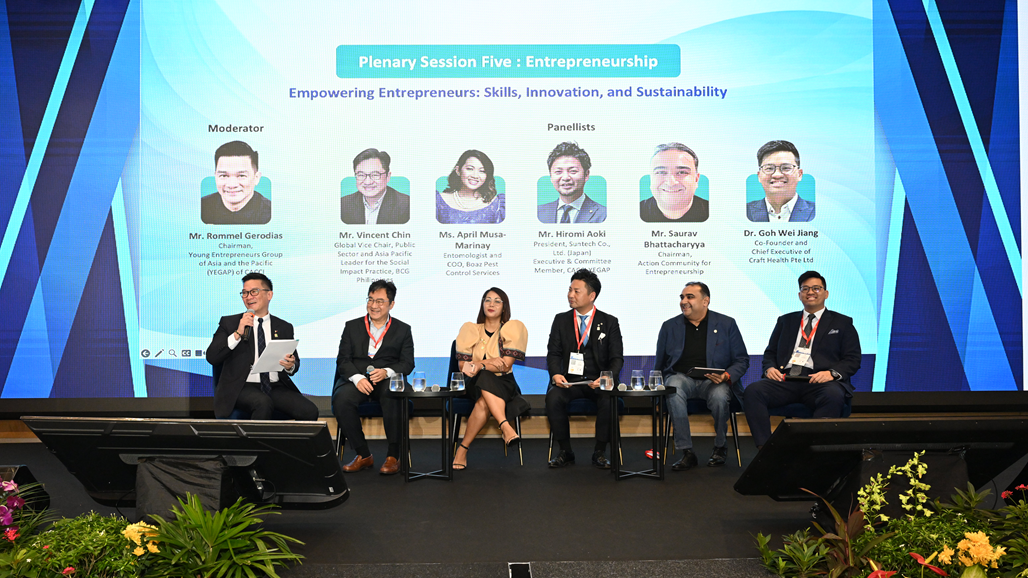Plenary Sessions
This session focused on the topic of building sustainable business. Discussions showcased how entrepreneurs across the Asia-Pacific region are incorporating eco-friendly practices into their business models. Topics covered by the session speakers and panelists included green financing, sustainable supply chains, circular economy initiatives, and the role of start-ups in solving environment challenges.
Experts shared views on strategies for balancing economic growth with environmental stewardship, citing successful examples from various sectors.
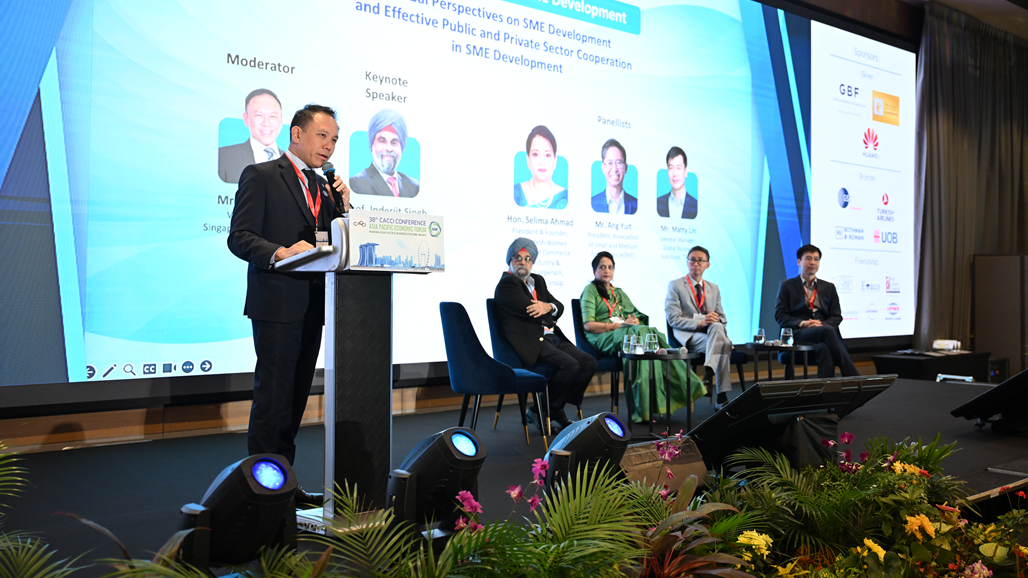
The session speakers and panelists explored the transformative impact of artificial intelligence and cyber security across the Asia-Pacific region.
They delved into case studies of AI-driven business models, the role of AI in streamlining supply chains, enhancing customer experiences, and driving efficiencies.
Discussions also touched on policy frameworks and partnerships necessary to foster AI innovation while ensuring ethical and equitable deployment
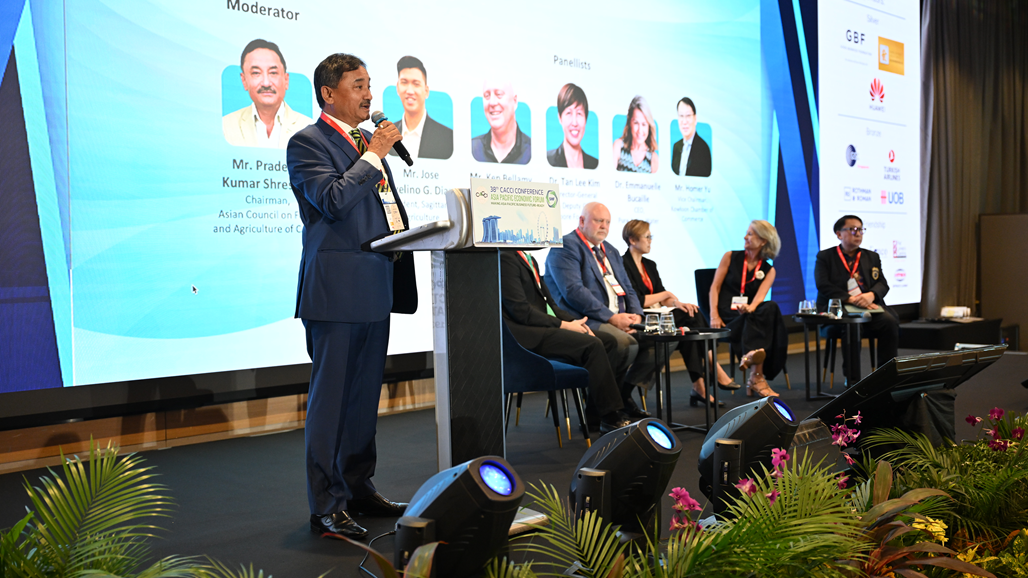
Invited speakers and panelists examined the evolving global economy and trade landscape, with a particular focus on digitalization, the rise of e-commerce, and the critical role of cross-border collaboration within the current macroeconomic and financial environment.
In addition to assessing the prevailing economic conditions, the panelists explored the potential impact of digital currencies and blockchain on trade finance. The session also covered strategies for SMEs to expand into global markets, while emphasizing the need for policy and infrastructure adjustments to support seamless economic activity, especially in response to recent and projected regional economic trends
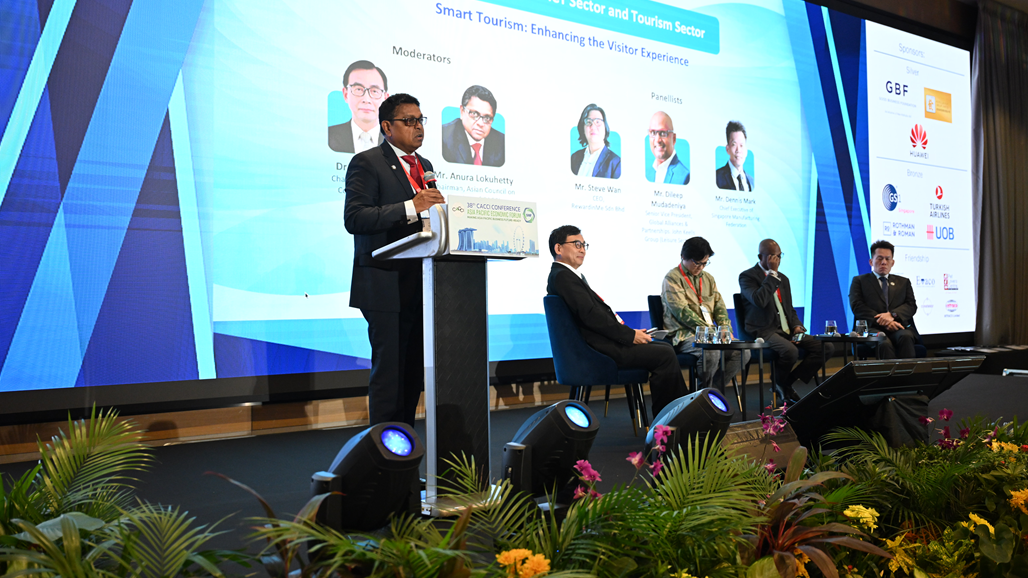
Plenary Session Three was followed by a special session focusing on the Johor-Singapore Special Economic Zone (JS-SEZ). Featured as Keynote Speaker was His Excellency Dato Dr. Azfar bin Mohamad Mustafar, High Commissioner of Malaysia to Singapore.
From the discussions that took place during the session, the audience learned, among other things, that: (a) the JS-SEZ was formed between the governments of Malaysia and Singapore to strengthen business ties and increase connectivity between the two countries; (b) the JS-SEZ offers special tax arrangements, passport-free clearance, digitized cargo clearance process, renewable energy cooperation for sustainability, training incentives, and joint events promotions to improve cross-border business for Malaysians and Singaporeans; and (c) some of the sectors that the zone is targeting include financial services, electronics, healthcare, and business-related services.
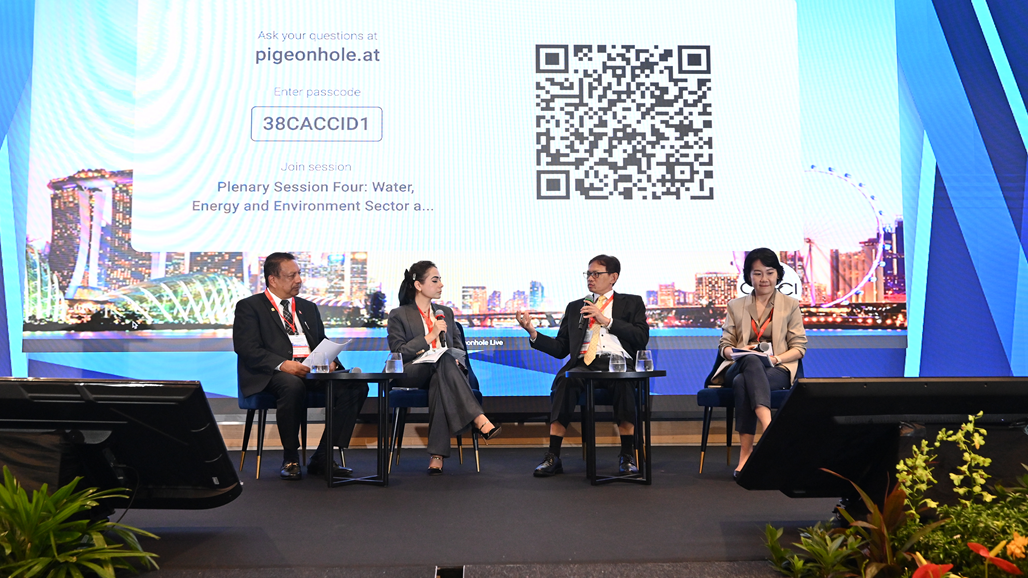
Mr. Paul Guerra, Chief Executive of the Victorian Chamber of Commerce and Industry, made a special presentation on the 14th World Chambers Congress, which is being organized by the International Chamber of Commerce and Industry World Chambers Federation (ICC WCF) on 2-4 September 2025.
To be hosted by the Victorian CCI and held for the first time in Melbourne, the event will have the theme ‘Business, chambers, government: Partners for prosperity’, highlighting a tripartite approach to propel economies forward – bringing together representatives from these three powerful groups from more than 100 countries. Discussions will address issues such as energy, sustainability, diversity and inclusion, cybersecurity, artificial intelligence, trade and export, and geopolitical relations.
Mr. Guerra said that the Congress will be the most significant business event in the world in 2025. Speakers and participants will be exploring the most significant issues and opportunities facing economies today, with a laser-sharp focus on the future and how business, chambers, and governments can work together to secure a prosperous economy.
Among the topics to be covered will include, International promotion; the digital economy, including AI and cybersecurity; regulation and supply chain issues; and skills for the workplace of the future.
